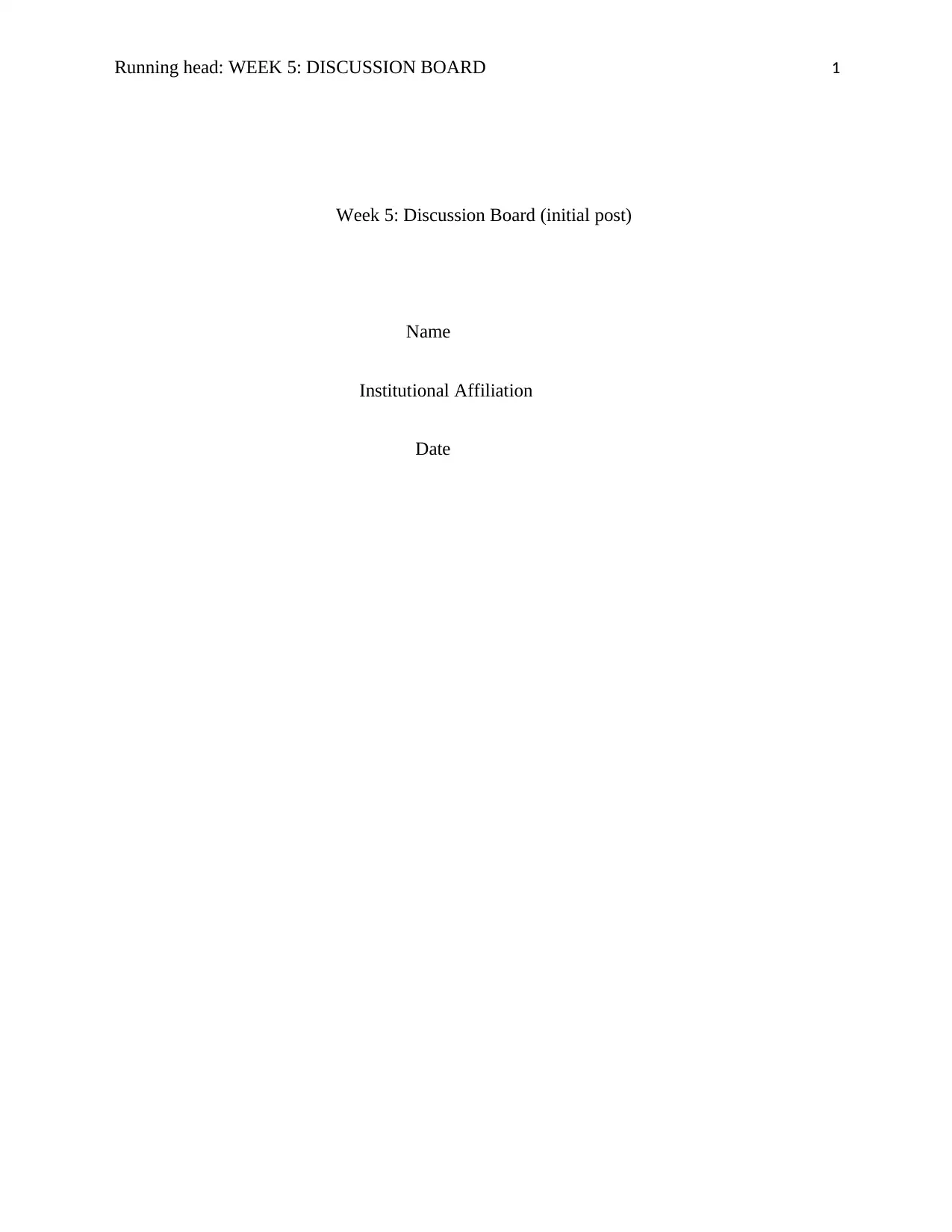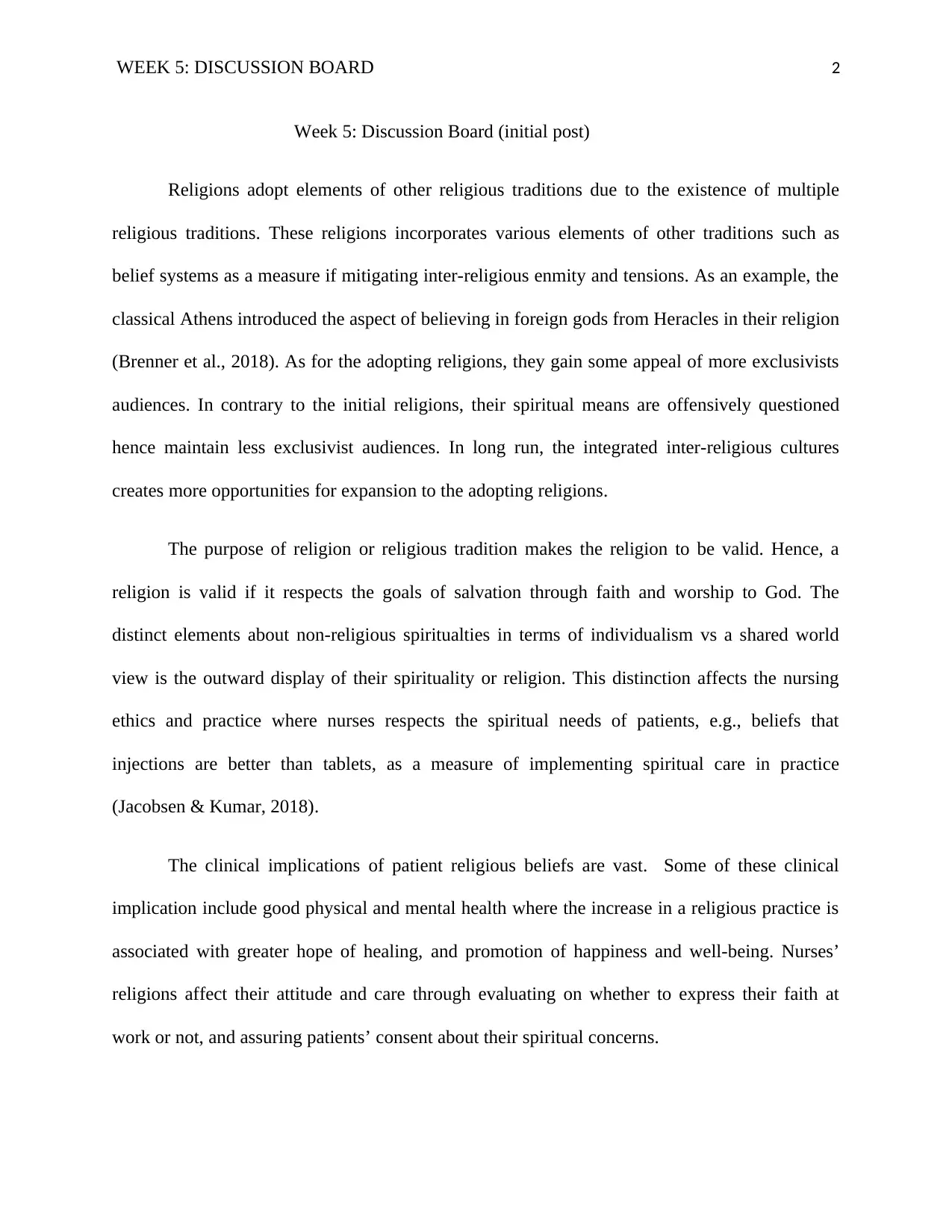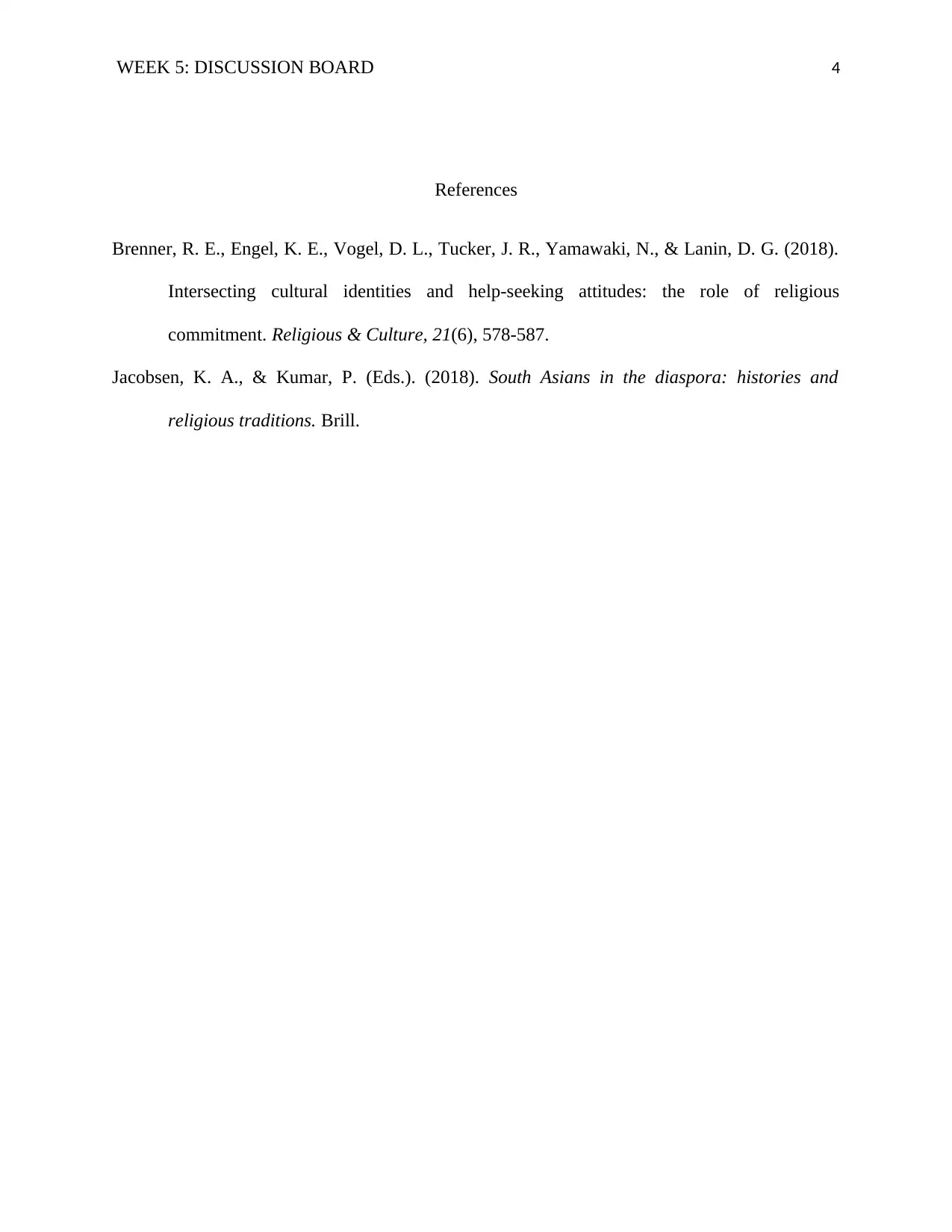Week 5 Discussion Board Post: Religious Traditions and Beliefs
VerifiedAdded on 2022/08/21
|4
|489
|19
Discussion Board Post
AI Summary
This discussion board post explores the intersection of religious traditions, inter-religious tensions, and their implications for healthcare practices. The post examines how different religious beliefs, such as those in classical Athens and the adoption of foreign gods, can influence cultural identities and help-seeking attitudes, as well as the impact of such beliefs on nursing ethics and patient care. The author reflects on the challenges of providing care to patients with different religious backgrounds, particularly in the context of potential conflicts between personal faith and professional responsibilities. The post highlights the importance of understanding and respecting diverse religious practices to provide effective and compassionate care, emphasizing the need for nurses to address patients' spiritual needs and navigate the clinical implications of their religious beliefs. The author references relevant academic sources to support the discussion.
1 out of 4









![[object Object]](/_next/static/media/star-bottom.7253800d.svg)